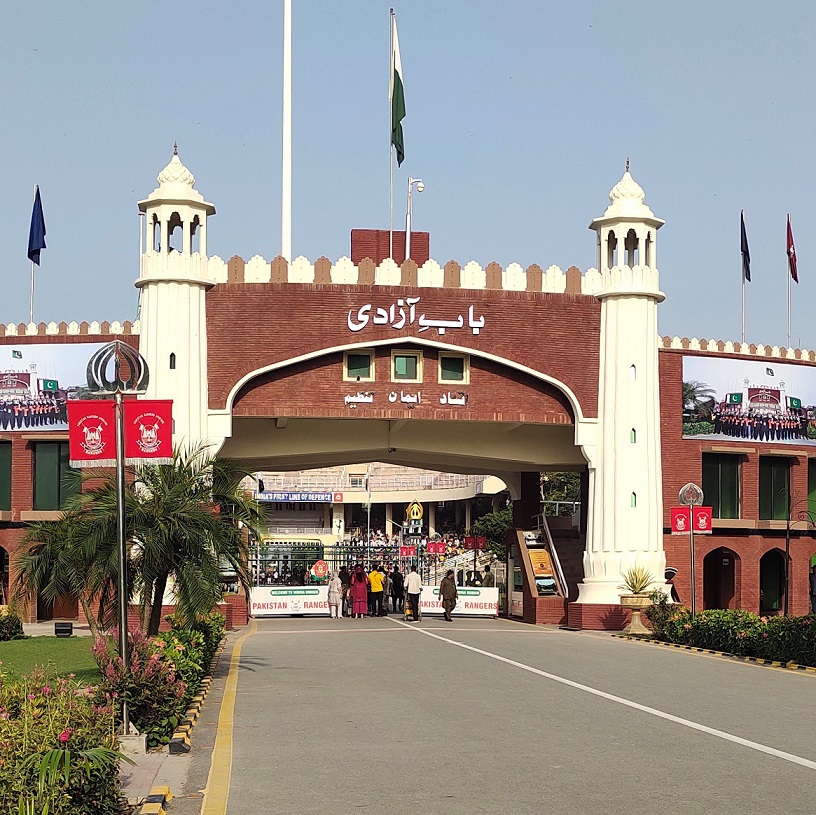Mohammad Riaz, a 25-year-old resident of a border village near Lahore, earns his livelihood by driving a Tonga from the Wahga border to Chungchar. Before this, he worked eight years as a porter/ carrier at the Wahga railway station and the Pakistan-India border. However, that work has come to a halt.
He explains that in 2019, trade, the Dosti bus service, and the Samjhauta Express between Pakistan and India stopped, leaving hundreds of people unemployed. Nearly a thousand Pakistani labourers, including himself, were sitting idle at Wahga.
Shabeer Hussain, another labourer who used to work at the border, managed his household by doing labour work at the border for months. He used to come to the border daily, hoping that trade or services might resume, but disappointment always awaited him. Eventually, he found employment at a bakery near the city. He worked there for a few months, earning up to 800 rupees a day, but the commute from his village incurred high costs, so he had to quit.
He has worked at a dhaba for the past few months, earning enough for two meals a day and some wages to sustain himself.
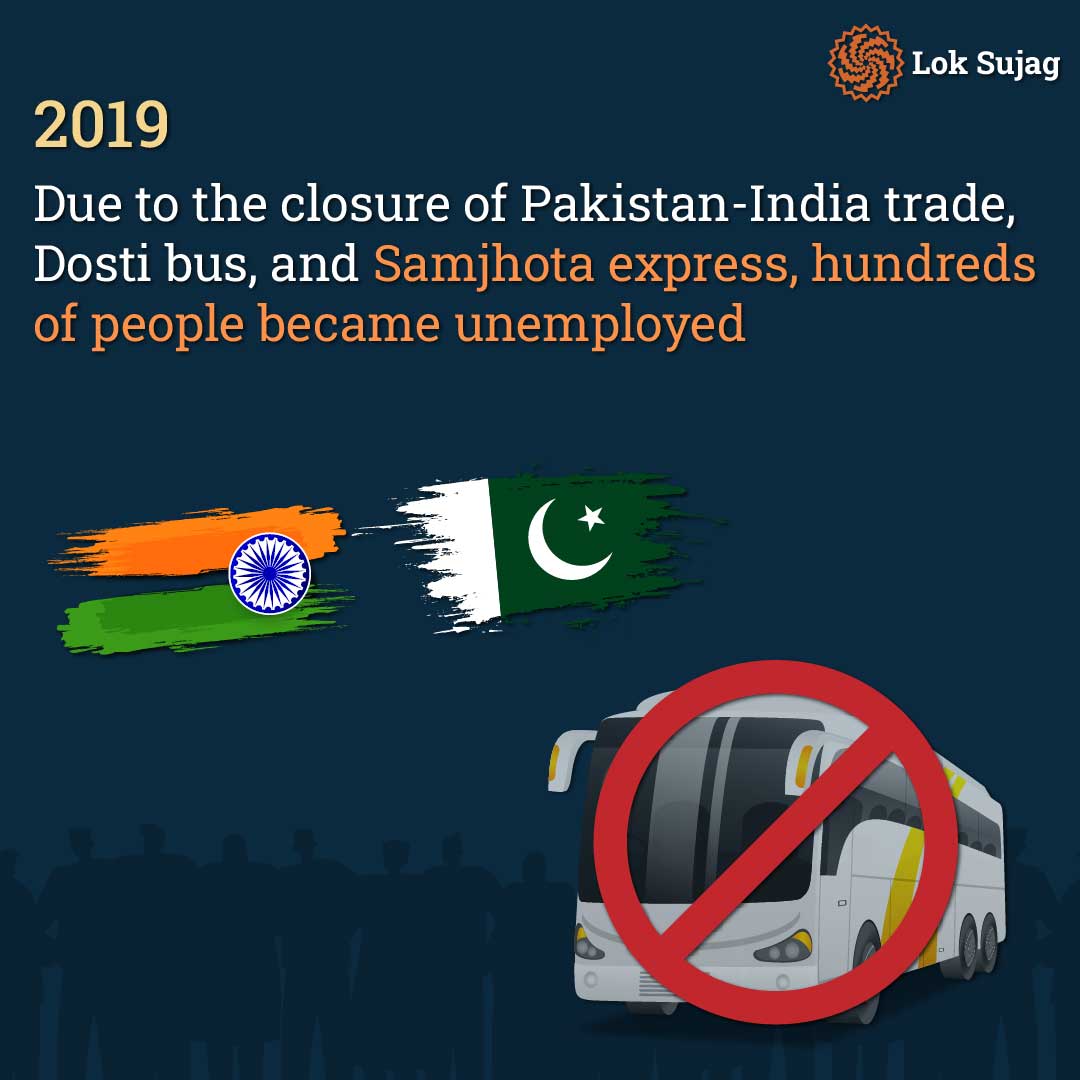
In February 2019, after the attack on an Indian military convoy in Pulwama, India imposed a 200 per cent duty on items from Pakistan. Then, in August, the Modi government revoked the special status of occupied Kashmir, leading to strained relations between India and Pakistan. Bilateral trade, the friendship bus service, and the Samjhauta Express train were all suspended.
Even after four years, the trade could not reopen. In this process, the labourers working at the border, porters, are among the most affected, with many still unemployed.
While trade between Pakistan and India through the Wahga border is closed, transit trade to Afghanistan and India continues from there. Similarly, the friendship bus service and Samjhauta Express train are discontinued, but people still cross the Wahga border on foot.
To facilitate travellers coming to and from Wahga, nearly 50 porters are currently working here. Khadim Hussain is one of them. He arrives at his duty station at 9 AM every morning. He says that when a Pakistani arrives here to go to India or a traveller comes from there, it makes us happy.
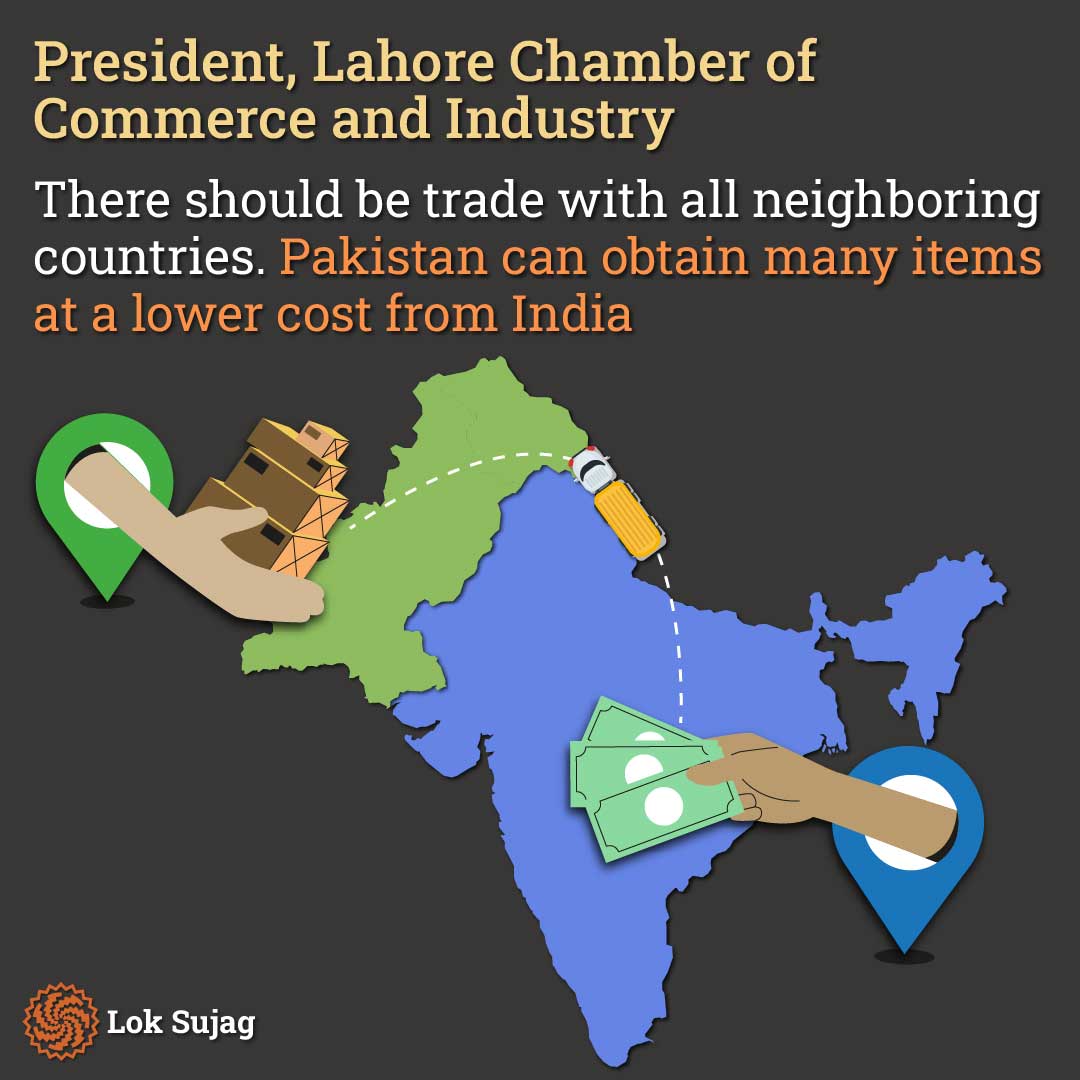
He explains that when a Pakistani or an Indian wants to cross the border, they come here, and he helps them with customs clearance and takes them to their vehicles. Similarly, he delivers Pakistani goods to the Indian porters at the zero line.
According to Khadim Hussain, they earn up to one thousand rupees daily. Each pandi waits for his turn. Sometimes, several porters go without work all day and return home empty-handed. Some individuals used to arrange transportation for travellers at the border, but now, their business is no longer operational.
The closure of Pakistan-India trade has also affected hundreds of Indian families.
Indian journalist and analyst Surender Khocher explains that he conducted a detailed survey after the suspension of Pakistan-India trade, the friendship bus service, and the Samjhauta Express. It was revealed that around 10,354 families directly related to bilateral trade were affected, and only the merchants of Amritsar City faced a monthly loss of 30 crore Indian Rupees.
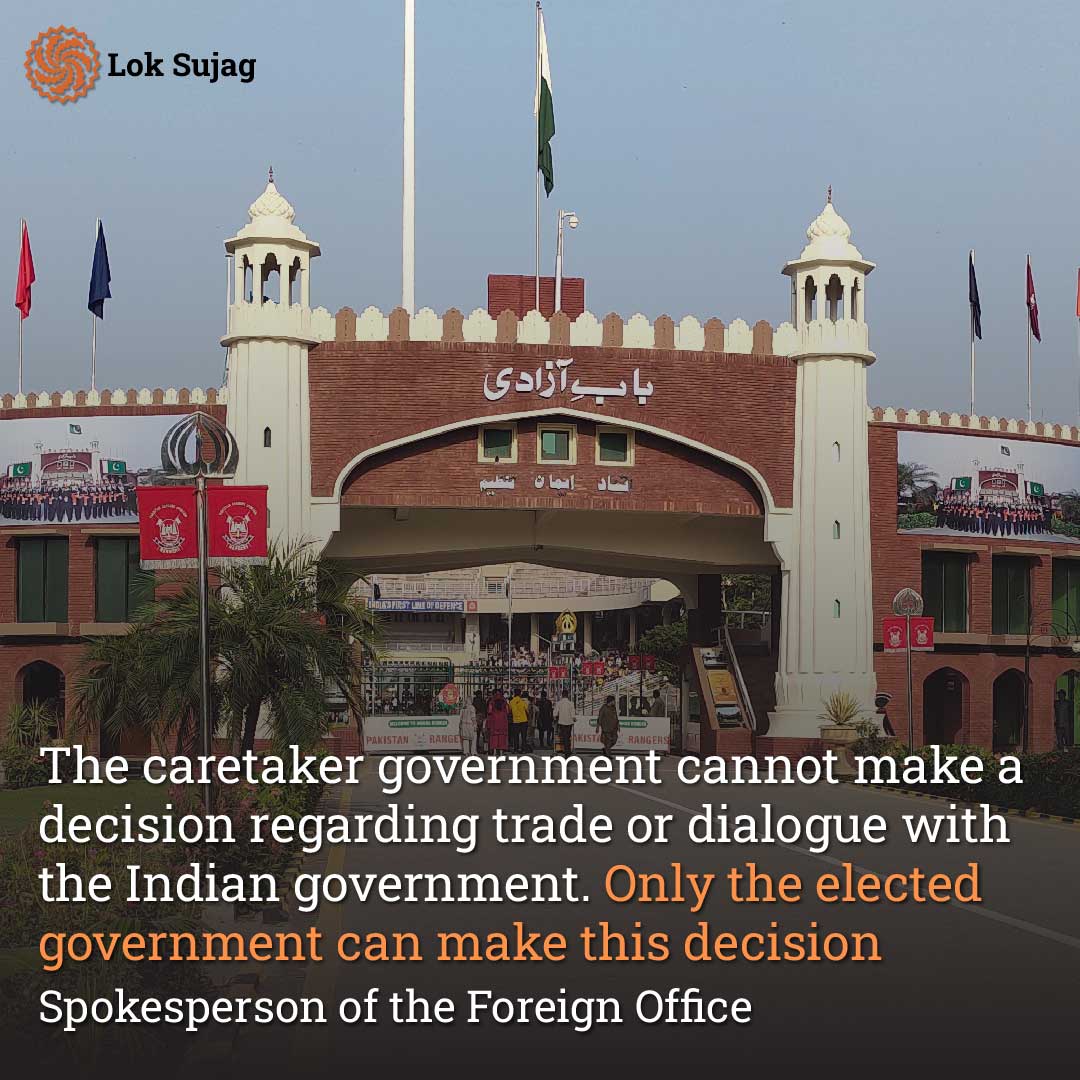
Karim Khan used to export gypsum to India. He mentions that they imported gypsum from Baluchistan and stored it near the border as per demand. Then, it was sent to India. However, when bilateral trade stopped, the stored gypsum worth millions of rupees was wasted.
He states that due to the losses incurred from gypsum, he is in significant debt, and the livelihood of over 150 families dependent on his business has been lost.
Prospects for Pakistan-India Trade Reopening
In May 2022, Pakistan appointed Qamar Zaman as the new Trade Minister in New Delhi's Pakistani High Commission, a position that had been vacant for five years. This appointment raised hopes on both sides of the border among traders, labourers, and transporters that bilateral trade might resume. However, this did not materialise.
Foreign Office Spokesperson Zahra Baloch explains that, at present, the caretaker government cannot make decisions regarding trade or dialogue with India. The elected government will make such decisions.
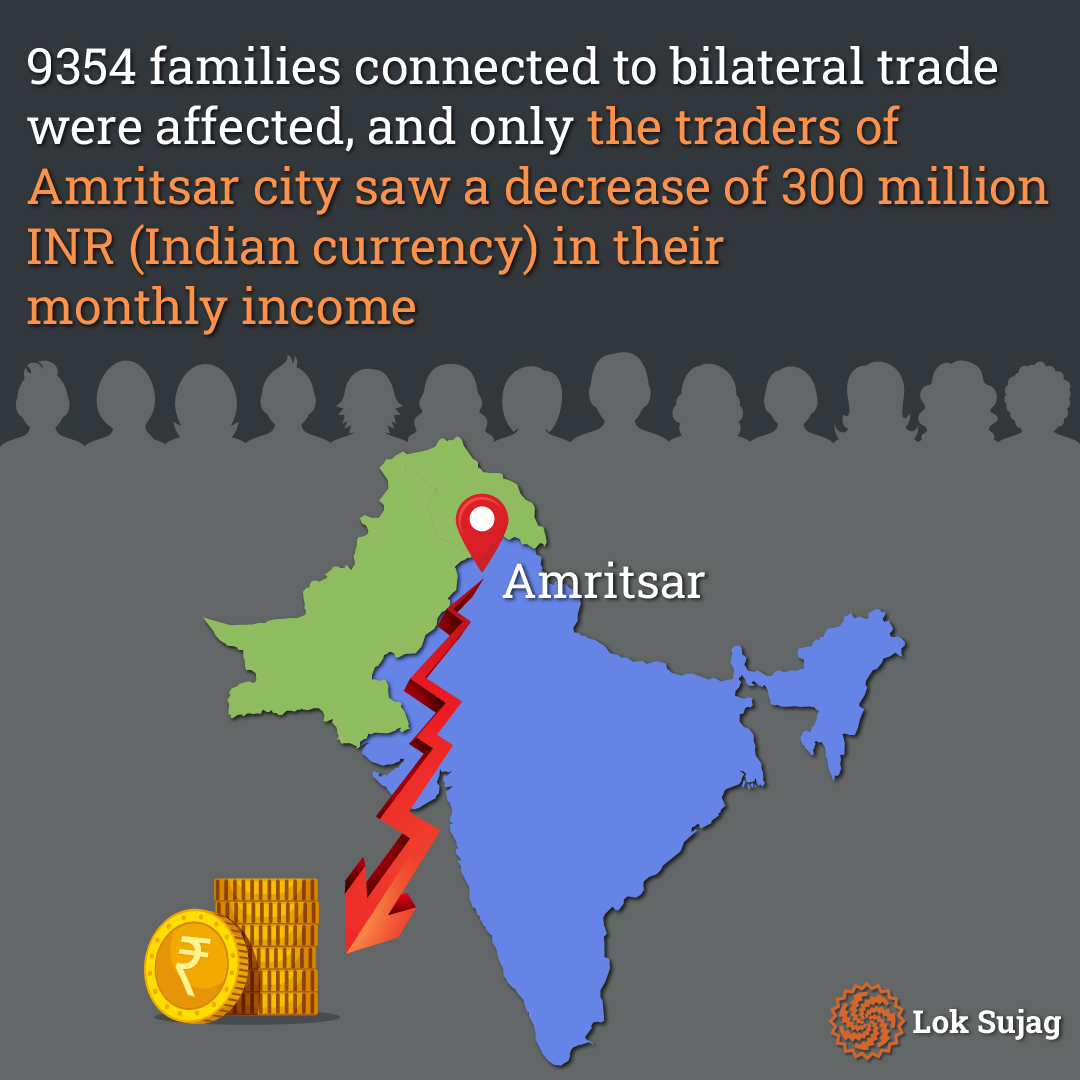
She emphasises that dialogue is essential for the revival of trade and relations. However, given India's tendency to level allegations against Pakistan in every matter and exert pressure, there is currently no possibility of negotiations under these circumstances.
Kashif Anwar, President of the Lahore Chamber of Commerce and Industry, believes trade should occur with all neighbouring countries. Pakistan can benefit from cheaper goods from India. Similarly, Pakistan can export its goods to neighbouring countries at better prices.
He states that Pakistan can sell its products in the markets of neighbouring countries at competitive prices, which can significantly boost trade. Bilateral trade will benefit businessmen and employ thousands of labourers on both sides of the border.
Also Read

Suspension of trade across the Line of Control: Thousands of Kashmiri traders and laborers lose their livelihood
Zubair Motiwala, CEO of the Trade Development Authority of Pakistan, has demanded the reopening of the Silk Route between Pakistan and India. However, in the current circumstances, he believes that trade negotiations with India are impossible.
The Caretaker Federal Minister for Commerce and Entrepreneur, Gohar Ijaz, says that the Caretaker Government has no authority to negotiate with India. Trade between the two countries is done through a third country, and this may continue to be the case.
During the Tehreek-e-Insaaf regime, there was a proposal to restore trade with India. However, it was withdrawn the next day.
Former High Commissioner of Pakistan in India, Abdul Basit, believes there is no possibility of improving relations with India. Until India restores the special status of occupied Kashmir, the resumption of bilateral trade, train, and bus services is unlikely.
Published on 9 Sep 2023
